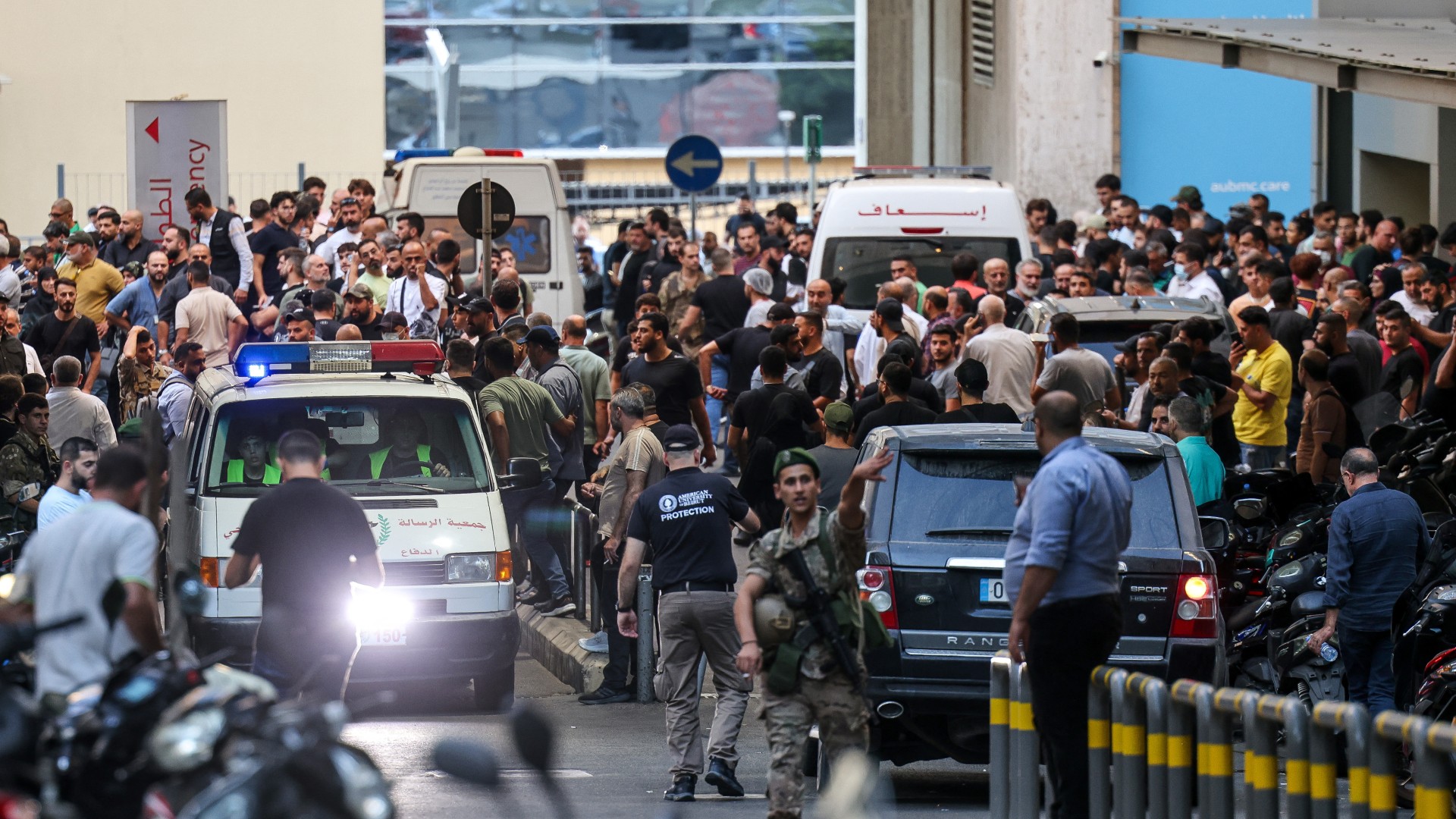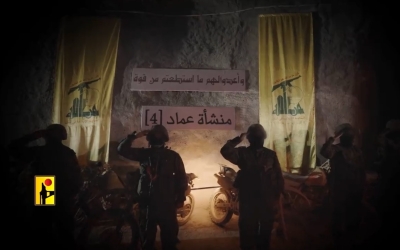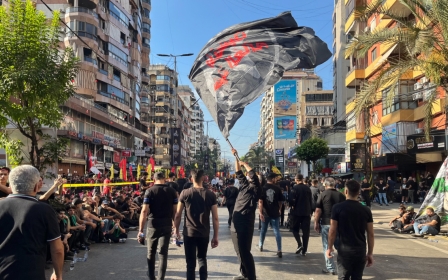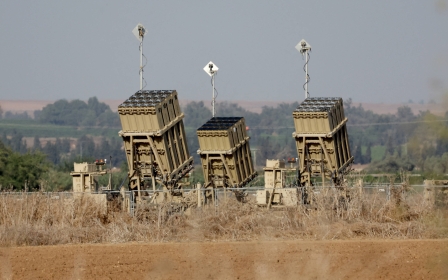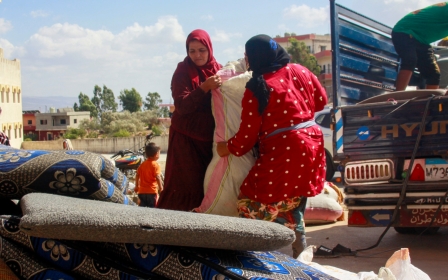Lebanon: Twelve killed and 2,750 wounded after deadly pager blasts
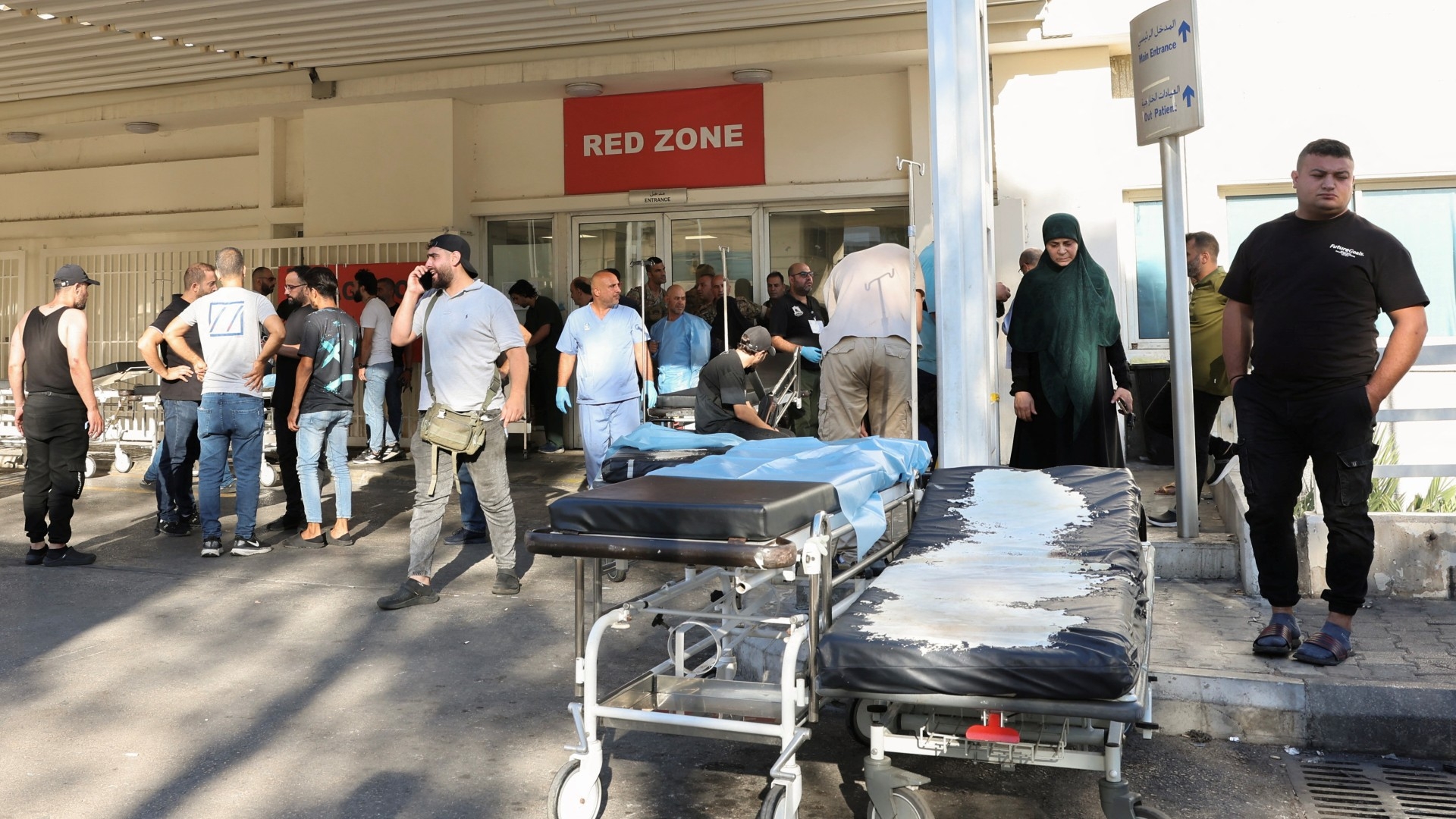
At least 12 people have been killed and 2, 750 wounded in Lebanon on Tuesday after pagers commonly used by Hezbollah exploded, in an extraordinary attack that the movement and Lebanese government blamed on Israel.
Hezbollah said "mysterious explosions" hit pagers across "various Hezbollah units and institutions" and that Israel would get "its fair punishment" in response.
Among the dead was a 10-year-old girl who was killed in eastern Lebanon's Bekaa Valley when the pager of her father, who is a Hezbollah member, exploded.
The son of a Hezbollah MP was also reportedly among those killed.
A Lebanese official, speaking anonymously as he was unauthorised to talk to the media, told Middle East Eye that he suspected that Israeli authorities penetrated the pagers in order to "provoke a war".
New MEE newsletter: Jerusalem Dispatch
Sign up to get the latest insights and analysis on Israel-Palestine, alongside Turkey Unpacked and other MEE newsletters
According to Syrian and Iranian media, Hezbollah members were also wounded and taken to hospital in Syria, where they have been supporting the government of Bashar al-Assad.
Mojtaba Amani, Iranian ambassador to Lebanon, was among those wounded. Hezbollah leader Hassan Nasrallah was unharmed, his group said.
Chaos at Beirut's hospitals
People covered in blood were seen staggering on the streets of Beirut immediately after the blasts, attended by passers-by.
Ambulances rushed the victims to the capital's hospitals, though several of them quickly reached capacity.
In Beirut's southern suburbs, an area commonly known as Dahiyeh where many Hezbollah supporters and members live, emergency medical tents were erected to treat patients.
Outside the Rafic Hariri University Hospital in southern Beirut, medical staff placed emergency beds outside the entrance to receive the wounded as quickly as possible.
Members of the public also gathered at hospitals, responding to calls for blood donations.
"I am still trying to understand what happened. I am just waiting for my husband to get out of the emergency room," a woman outside Hotel-Dieu de France hospital, who asked to remain anonymous, told MEE.
Onlookers were reprimanded for taking photographs of the wounded Hezbollah members.
'Groundbreaking' attack
The affected pagers were from a new shipment that Hezbollah had received in recent days, The Wall Street Journal reported.
A Hezbollah official told the WSJ that hundreds of fighters had such devices, and said that malware may have caused the pagers to heat up and explode. Some people felt the pagers heat up and threw them away before they detonated, the official added.
It is not yet clear how the pagers were made to explode. Some have speculated that explosives were somehow placed inside the devices. Israel has not commented on the attack or the accusation that it was responsible.
Since the 7 October Hamas-led attack on Israel and the ensuing war on Gaza began, Hezbollah and the Israeli military have been engaged in exchanges of fire. The fighting has killed hundreds of Lebanese, mostly Hezbollah fighters, and dozens of Israelis.
The Lebanese movement, which is the strongest non-state military power in the world, says it is attacking Israel in solidarity with the Palestinians in Gaza and will stop fighting if the Israeli government agrees to a ceasefire with Hamas. Israel has repeatedly threatened to invade Lebanon in response to Hezbollah's attacks.
Earlier on Tuesday, Israel's Shin Bet internal security service said it had foiled a Hezbollah plot to kill a former Israeli defence official using a remotely detonated explosive.
Military analyst Mustafa Asaad described the pager attack as a "groundbreaking method" using "state of the art" technology.
He told MEE that Israel appeared to have broken into Hezbollah's "command and communications networks, identified operatives one by one, analysed their movements, and then directed a form of kinetic attack over the entire broadband".
Asaad was sceptical that the pagers were booby-trapped, saying such a scheme would be too simple and easily detected on delivery.
Wary that Israel's technologically savvy military and intelligence services could infiltrate its communications, Hezbollah has increasingly relied on more rudimentary devices and methods, like pagers and couriers.
In February, Nasrallah urged his followers to beware of smartphones and social media.
According to Asaad, "those targeted so far appear to be operatives in the security branch, counterintelligence, field operatives and higher echelon leadership levels".
"This means that the entire communication platform has been hacked and broken through, and one could only imagine since how long," he said.
"All in all, this is a severe blow to Hezbollah and this means that the entire structure has now been compromised. You cannot replace entire security units overnight and you cannot find replacements that easy and train them during an all-out war."
Ragip Soylu contributed to this report from Ankara, Turkey.
Middle East Eye delivers independent and unrivalled coverage and analysis of the Middle East, North Africa and beyond. To learn more about republishing this content and the associated fees, please fill out this form. More about MEE can be found here.


